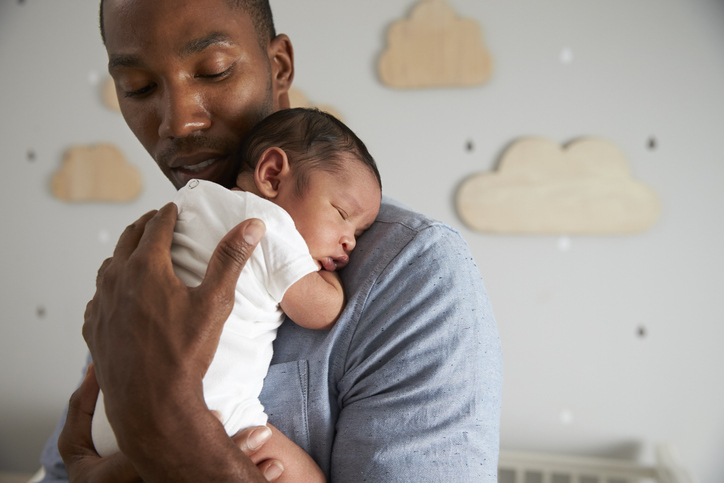If you’re longing to get a good night’s sleep again—something that might currently seem impossible with a baby who wakes up frequently in the night—the Cleveland Clinic has some tips on how to sleep train your baby.
What Is Sleep Training?
Cleveland Clinic defines sleep training as a process where your baby learns to “fall asleep by themselves — whether that’s in the very beginning of the night when they are put into their crib or when they wake up in the middle of the night.”
Sleep training can often begin when your baby is four months old. At this point, they may not need fed at night; they are able to learn how to soothe themselves, and their sleep-wake cycle is beginning to mature. Some babies, they note, can begin earlier while some won’t be ready until six months of age.
Sleep Training Methods
Plenty of methods exist and you may need to experiment with the ones listed in their in-depth article. What works for one baby might not work at all with another. So, if you try one strategy for a week with no results, consider trying another.
The Clinic also shares the importance of developing a bedtime routine. This can include a bath, feeding, and then reading time. For some babies, it can help to feed them in a room other than the nursery, so they learn to associate their bedroom with sleep, not food.
No matter which training method you’re using, watch for cues of sleepiness. Look for yawning, eye rubbing, and so forth to time their bedtime appropriately. And be confident in your ability to sleep train. Your baby picks up more of your emotions than you may realize.
Parents and caregivers will need to train themselves not to respond to every cry the baby makes. There will always be some fussing involved and, if you interrupt the process, it’s unlikely to work well. Also, consider talking to your pediatrician if you have questions or concerns.
Sleep Foundation Advice
The Sleep Foundation also has tips to share, including these:
- Keep a sleep training diary to monitor progress. This can encourage you when you feel as though you haven’t made any headway and can help to highlight times when you aren’t being consistent in your strategy.
- Rough nights will happen. They may occur because your baby isn’t feeling well, a parent is out of town so the routine changes, or for a reason that you may never quite figure out. Be patient.
- Remember that most babies sleep through the night by the age of nine months, so relief is probably coming soon.
As your child matures, their routines will change—perhaps when they start going to a childcare center or preschool. You can use the same techniques you’re learning to modify their sleeping schedule appropriately.
Additional Tips To Help Baby Sleep
Plus, Sleep.org suggests that you make sure the bedroom is dark, quiet, and at a comfortable temperature. Also ensure that, in the daytime, your baby is getting enough exercise, fresh air, bonding time, and so forth. When they do, they’ll likely be more tired when bedtime arrives. However, make sure that your baby doesn’t get too tired! Overtired babies often have trouble falling asleep. Watch for cues of tiredness and begin the bedtime routine at the optimal moment.
It may not be easy at first, but you will appreciate the payoff. Sleep training your baby can be tough, but in the end, it will be the best thing you can do for your child, and yourself. Good luck!










